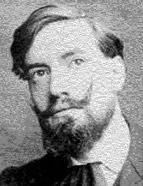

“Long years spent in Portuguese and foreign archives have led us to give increasing importance to anonymous and collective creation". ("A História e o Historiador” [History and the Historian"], p. 5). From 1916 onwards, therefore, less rhetoric, less Oliveira Martins - the author of historical biographies - and more attention to the work of the historians around him, especially Luciano Pereira da Silva, writing and researching. The author of A Astronomia dos Lusíadas [Astronomy of The Lusiads] is believed to have played a highly prominent role in the future historian's preparatory phase. Cortesão read him attentively, studied him - he referred to the "proficient assurance" with which Pereira da Silva presented his evidence "with admirable documentation and logic." ("Afirmações da consciência nacional. VI. Civilização Portuguesa [“Assertions of national consciousness: VI. Portuguese civilisation"], p. 67). Conjugating the sources in a verisimilar sequence, with full awareness of the process, was a fundamental feature of the great future constructions of the poet-historian. Assurance, documentation, logical sequence in the spirit of the time, evidence. And the eulogy cradled in vibrant writing.
However, the admirer of heroes also began to draw closer to other authors- authors who awakened new interests in him - and with great earnest. And he saw other themes being addressed with critical rigour and exigency, which he eventually adopted as his own. There appears to have been another essential contribution: that of António Sérgio. In 1912, the very same António Sérgio had already fiercely contested the " shadow of that bunch of hazy grandfathers ", with the usual banalities of the republican view of history (especially of its most enlightened phalanx, the "Portuguese Renaissance") (Sonnet dedicated to Augusto Casimiro, "Pela Grei. Os que sonham.” [For the People. Those who dream"], in A Águia, no. 28, p. 147). In the ensuing years, he published his irritating proposals for the interpretation of a homeland history that had to be escaped. The controversy that followed clearly showed that the field in which Cortesão had placed himself, that of rhetoric, had become indefensible with only words as its weapons. Let us consider one case. In his 1912 "A idealização legendária no Povo português" [“Legendary idealisation in the Portuguese”], he stated that he wished to analyse "some of the most beautiful and representative legends", and yet he commingled Herculano, Camões, the trovas do Bandarra [the prophecies of Bandarra], Rui de Pina and popular verses, with no criteria to distinguish what was legendary or merely taken as such. All this despite wishing to demonstrate that each people "has a system of historical legends, in which the heroes are always praised, since heroism is the most necessary of virtues for the conservation of the aggregates" (A Águia, no. 28, p. 117). Yet this demonstration he did not make, nor could he, as he lacked the tools of the trade.
